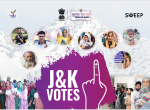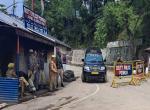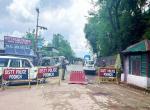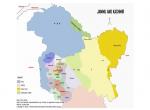After the break-up of the tumultuous political alliance between the PDP-BJP (19th June 2018), Governor’s Rule was imposed in the State for the eight’s time on June 20, 2018. Once again, it seemed that the history has destined to write-off any possible solution for peace and consigned the recurring spells of political crises to relatively stable spell of governor’s rule, in an overarching backdrop of militancy peaking and plunging as per the designs of Pakistan. Amidst the flood of the op-eds dissecting the causes and circumstances of the PDP-BJP break-up, an objective piece authored by Mr. CD Sahay, a veteran Kashmir hand and former RAW chief, made a thoughtful observation, “The moot point here is to try to understand where does Kashmir go from here” (Kashmir-An Analysis of Recent Developments, VIF, 22/6/2018).
Governor NN Vohra, who took over the charge had a vast experience of handling Kashmir, first as Home Secretary, then as the Interlocutor and finally as the governor for almost a decade. However, on 21st August, Shri Satya Pal Malik, the then Governor of Bihar was appointed as the new Governor of J&K. The appointment itself became a subject matter of great concern and curiosity for political analysts and geo-political experts because Malik is the first ever politician to be appointed as the governor of the militancy-ridden state. Before his appointment, the state of J&K had the experience of dealing with governors having a military, intelligence and bureaucratic backgrounds. Even the mainstream political leadership and the separatist leaders of Kashmir had a tough time fully comprehending the appointment of a political governor. However, the selection of Mr. Malik was a clear indication of New Delhi’s sensitivity to the political aspirations of the people of J&K. The appointment also suggested that Delhi’s approach towards Kashmir was not going to be totally security-centric. Further, it also indicated that Delhi wanted to provide a healing touch to the state riven with militancy and bloodshed, but without any compromise on the principle of zero-tolerance to terror.
Obviously, the Government of India did not spell out, in fact none was required, its objectives behind sending a political appointee as the new governor, when it is going through a profoundly disturbing phase of terrorism with an increasingly active participation of the homegrown cadres. An objective analysis of the developments in the last six months of the governor’s rule can be immensely helpful in understanding what such an alternate strategy can potentially achieve in Kashmir. Further, the previous six months of governor’s rule have some interesting answers to the question to Kashmir’s journey ahead.
Starting with the terrorism front, it is widely acknowledged that the Security Forces (SFs) have achieved exemplary success. The latest data released by the Jammu & Kashmir Police (JKP) shows that in 2018 SFs neutralized 267 militants in counter terror operations, the highest figure in the last 12 years (Business Standard, 31/12/2018). The achievement has been against heavy odds. The police had to face immense social and psychological pressure when Hizb-ul-Mujahideen (HM) kidnaped their family members. Further, in South Kashmir where the alienation levels are high, the local police officials have been steadfast in their commitment and loyalty towards their duty. Except for the few unfortunate incidents, the operations were clean with minimal number of civilian causalities. Also, this needs to be read in the backdrop of the fact that in most of these operations, the outer line of the security forces has to deal with an aggressive and highly radicalized mob of stone-pelters, with the inner team directly engaging the militants. To keep restraint in the face of highly violent and radicalized mobs, to avoid civilian deaths, is an extraordinary feat which SFs displayed in J&K and they deserve all the credit for that.
The overall security situation has remained in control. The incidents of stone-pelting have sharply fallen, and terrorist recruitment has also drastically reduced.
Turning to political issues and public outreach initiatives during the period of Governor’s Rule, the most outstanding achievement of the state administration and the security forces has been the holding of peaceful, free and fair elections to the Urban Local Bodies and Panchayats. Holding violence-free elections in the conflict state where there is a history of election-time violence is indeed a great achievement under the stewardship of the new Governor. Barring certain areas in South Kashmir, the voting percentage too was been highly encouraging. The participation of the rural and urban voters is reflective of their faith in the institutions of secular and democratic India.
On the question of public outreach efforts, it may be mentioned that in the past, governor’s rule was often seen as an attempt by the Central Government to impose/implement its agenda. However, this time around the story has been different. In some of the initial interviews, the Governor spelled out his mission to ‘kill militancy’ rather than to ‘kill militants’. The idea of defeating militancy has struck a chord with the youth of the state. His unfettered, informal and friendly style of outreach included directly receiving phone calls of ordinary citizens and the immediate disposal of public grievances. These have been received very positively. It has generated a ray of hope and the desire to participate in state institutions.
Further, the Governor has focused his efforts on youth empowerment, counter-radicalization, job creation, quality education, good governance, and anti-corruption drive. These too have been received with great enthusiasm. This needs to be understood in the backdrop of the fact that the over the last decade, the youth in J&K has been suffering from a strong sense of despondency, alienation, and pessimism because of nepotism, corruption and poor governance. As a result, they lost faith in the democratic institutions and governance and to soothe them in such state of despondency, there was a heady dose of Pak-sponsored religious extremism and radicalization leading to violence, thereby both of them feeding into each other.
The initiatives against corruption such as the cancellation of the Reliance-Mediclaim Scheme, repeal of Roshni Act (29/11/2018, Indian Express), appointment of 582 candidates in J&K Bank (21/10/2018, Kashmir Images) who, allegedly did not qualify because of massive corruption in the selection process and vigorous action against by the hitherto inactive vigilance departments against corrupt government officials, have made substantial impact in the minds of rebellious and angry youth who out of utter frustration and anger chanted ‘Azadi’ over the most mundane issues such as water and electricity.
Similarly, in the field of developmental activities, the decision-making process has been speeded up, the State Administrative Council (SAC) sanctioned 40 new colleges for the State (Kashmir Reader 5/9/2018), and the 2018-19 budget allocated Rs. 32 crores for five new medical colleges expected to be operational by 2019. In a landmark development, the North Eastern Industrial Development package has been extended for the State of J&K (Daily Excelsior, 22/12/2018). The package includes GST and income tax reimbursement, employment incentives and transport incentives. These are designed to give a significant boost to industrial and tourism development.
And finally, on the political front, observers agree that a perceptible change is apparent in the approach of a ‘political’ governor as compared to those with bureaucratic background. The ‘new approach’ began with the Governor in his earliest interviews, candidly accepting that mistakes were made in the past, reminiscent of a similar statement made, though in a different context, by former Prime Minister Shri Vajpayee in his Independence Day address in 2003. This went down well with significant impact on the politically sensitive youth of Kashmir. Coupled with similar approach in the subsequent utterances of the Governor in public speeches, one got a sense that an attempt was being made to inject an alternate narrative by focusing on development and youth empowerment.
There has been special focus on sports activities like football and cricket. The state administration had decided to construct stadiums in each district. Youth organizations engaged in promoting sports activities are being supported morally and financially. Besides, there has also been an intent to engage the young minds and lead them towards wisdom and rationality by taking a rational and principled stand against glaring economic disparities in Kashmir, religious radicalization, poor governance, and bureaucratic corruption.
There was some unintended political controversy surrounding the decision to dissolve the State Assembly on November 19, 2018. Governor later categorically explained that close to the date of dissolving the state assembly, he was continuously receiving briefs on the horse-trading activities and the use of other under-hand tactics by political parties to form the government. He maintained that the decision to dissolve the assembly was taken honestly and impartially. Independent observers agree that the valley was rife with the rumors of political defections and other undesirable moves. The decision to dissolve the assembly was indeed an ethical and principled defense of democracy. Amidst all the alienation that the state is currently suffering from, it saved the faith of the people of Kashmir in India’s democracy and constitution, to a great extent.
Challenges Ahead
The six-month period of governor’s rule ended on December 19 and based on the recommendations of the Governor and the Union Cabinet, President’s Rule was imposed in the State on December 20, 2018 for a period of six months in which, normally, fresh elections to the State Legislature must be held. The road ahead in the State should therefore lie in ensuring timely holding of elections that would strengthen people’s faith in the democratic process. The choices are either to do so along with the parliamentary elections due to be completed before May 2019 or, in the alternative, opt for separate elections. The choice will have to be made by the Election Commission but for this to happen, the first requirement would be create congenial political environment and, of course, safe security conditions.
To begin with, it needs to be mentioned that the security forces deserve all the due credit for neutralizing a record number of militants this year (257). However, about 305 militants (TRT World, 26/12/2018) are still active in the Valley. It clearly shows that a lot still needs to be done to address the issue of militant recruitment. Without bringing the recruitment levels down, the fight against militancy is nothing more than pruning the off shoots while leaving the seeds of militancy intact. To make a step in this direction, one, at first, needs to make an objective assessment of the causes of militancy. Security experts believe that that apart from the continuing sponsorship of terror from across the borders, the roots of the militancy lie majorly in the growing religious radicalization seconded by the alienation of the people. ‘Alienation’ is a wide-ranging term that encapsulates people’s frustration, mistrust, and anger due to poor governance, the dismal state of public infrastructure, nepotism, corruption, human right violations, and the bureaucratic arrogance.
The Government will need to address the two root causes on priority. Currently, the morale of the militant groups is very low due to the success of security forces in counter-insurgency operations and the loss of legitimacy as the right way of struggle. Besides, local militant groups are also not getting the desired support from their foreign controllers. It appears that tight vigil on borders, India’s tough and consistent stand of the impossibility of terror and talks going together, international isolation and the dire economic situation have put the establishment in Pakistan under pressure. Hence, this is the most opportune and a strategic moment to crackdown on the Pak-sponsored infrastructure of radicalization and terror financing.
Another challenge is to bring down the level of alienation. Here, one would like to reiterate that development efforts, promoting sports and economic packages are good initiatives. However, no matter how much one tries, all these initiatives can succeed only by engaging the young minds in a dialogue, psychologically, giving them a sense of dignity, empowerment, and involvement. These are not complicated issues requiring centrally-monitored policy guidelines. A lot can be archived by the informal and friendly initiatives of district and state-level civil servants.
It must be admitted situation on the ground is not very encouraging and if the right steps are not taken at this stage the consequences in the future can be profoundly disturbing. Further, there is significant youth bulge in Kashmir. Literacy and awareness levels are very high. If their energies are not channelized in the right direction and towards productive ends, it will dissipate either into drugs or into religious extremism. Hence at this stage, one needs to think beyond the narrow-political interests and bring back an element of vision and strategic thinking. Secondly, the change also needs to be perceptible in implementation, and for that, we need a significant overhaul in the work-culture of the state bureaucracy, otherwise hollow promises getting lost in the hubris of officialdom will be even more detrimental.
The third challenge, as mentioned earlier, is to revive a vibrant political process in the State. The mainstream political parties have lost legitimacy and credibility because of political opportunism, abysmal track record in governance and high levels of corruption in development projects and formal recruitments. The loss of faith in the mainstream political parties is also an important component of continuing high levels of alienation and mistrust. The social and cultural space lost by the secular, rational and principled politics has been quite successfully captured by organization engaging in religious radicalization through charity and social service. In such a social milieu, political parties might feel tempted to exploit the anti-India sentiment by going soft on separatists and terrorists. Further, they are also likely to condone the destructive activities of the organizations engaging in religious radicalization. Such populist campaign, even if followed by free and fair elections, will be detrimental to the interests of the State in the long run. Hence, it is indeed a significant challenge to restore and revive a constructive and healthy democratic process in the State.
Fourthly, efforts should be made in right earnest to empower the recently constituted Urban Local Bodies (ULB) and Panchayats. The morass into which the youth of the state has drowned into can be fixed to a large extent by the empowerment of local self-government institutions. Such an exercise will positively contribute to revival of people’s faith in the strength and rationale of democracy. The impact can be seen in the enthusiastic response of the youth to the efforts of the young Mayor of Srinagar. Kashmir needs synergized efforts of the Sarpanch and the MLA not a situation of rivalry between the two. Hence the grassroots democracy needs to be strengthened.
These measures could be part of a long-term vision, strategy and a roadmap for Kashmir based on a nuanced and a cross-disciplinary understanding of the past, present and future.
(The paper is the author’s individual scholastic articulation. The author certifies that the article/paper is original in content, unpublished and it has not been submitted for publication/web upload elsewhere, and that the facts and figures quoted are duly referenced, as needed, and are believed to be correct). (The paper does not necessarily represent the organisational stance... More >>
Image Source: https://images.indianexpress.com/2016/09/kashmir-7596.jpg











Post new comment